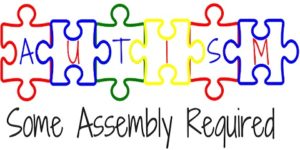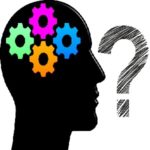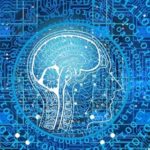Does autism make you smarter
As an educator about autism and an advocate for autism awareness, I often receive a lot of questions.
One of the questions I frequently hear is, does autism make you smarter?
I will fully cover this question throughout this article, but here is a direct answer.
Autism is a cognitive disorder and a developmental disability. It is NOT a mental illness nor a mental disorder. Autism itself does not increase nor decrease intelligence. People who are diagnosed with autism however, often receive additional diagnoses that may have an affect on their level of intelligence. In short, autism does not make you smarter.
Someone with autism is simply a person, just like you or me.
A great article I wrote that helps reflect that is Autism Understanding vs Awareness.
How Intelligence For Autistic People Is Seen
I think we hear this question so often due to recent television shows, movies and media stories.
In TV and the movies, autistic people are portrayed as being super intelligent. They see things that other people miss, and are able to pull obscure answers out of thin air to complex questions that baffle everyone else.
On the flip side are people who have autism in real life.
Not only are real autistic people not thought of as smarter, they are frequently looked at as less intelligent due to their social awkwardness.
They may be quiet or shy, and common social circumstances that most people take as everyday knowledge may escape them.
Something like not interrupting someone when they’re talking doesn’t always register with a person on the spectrum.
Then there is the media.
The media does not depict autistic people as being smarter. They paint a picture of someone with autism to fit whatever story they are writing.
If a crime is committed then it’s an autistic person who has a lower IQ, and may not have the ability to feel empathy.
When there’s a scientific breakthrough discovered by a person with autism, it’s the genius autistic who made the discovery.
For a “feel good” piece, it’s the person who everyone thought was socially awkward and dumb who was actually autistic and had some amazing ability that no one thought they had.
The reality is that people with autism are just as likely to be smart, or less than smart, as everyone else.
How Do IQ Scores For Autistic People Compare To Non-autistic
Things begin to get a little fuzzy when we look specifically at IQ scores and take them for face value.
I’ve heard it said that approximately 1% of neurotypical people (non-autistic) have an IQ score below 70. At the same time, nearly 40% of people on the spectrum score below 70 on an IQ test.
How can this be If autism doesn’t impact an individual’s level of intelligence?
I believe there are two main reasons for this.
The first is what we stated above. While autism itself doesn’t affect a person’s intelligence, many people diagnosed as autistic are also diagnosed with other disorders that do impact it.
This has more to do with the broadness of what is considered autism rather than autism itself leading to additional disorders.
Autism is a spectrum. In fact it’s official name is Autism Spectrum Disorder (ASD).
It is called ASD because it encompasses everyone from the kiddo who seems perfectly “normal”, but in fact doesn’t always get jokes, has some unseen difficulties with sensory processing and for all accounts and purposes just seems a little shy, all the way to the child who is nonverbal, isn’t potty trained, is seemingly lost within themselves and is also diagnosed with mental retardation.
Both are autistic, but are as different as apples and oranges.
When we ask things like, does autism make you smarter and we look at IQ scores for people on the spectrum, we are treating both of the individuals I described above as being the same since they both have autism.
We look at autism as a whole and the scores as a whole. This means we group someone only diagnosed with autism along with the person who has autism AND mental retardation (or some other mental disability).
This distorts the numbers.
The second part to this is the IQ test itself.
The way the test itself is administered makes it difficult for many people on the spectrum.
Not only that, IQ tests also cover a broad range of topics, whereas someone with autism may have very narrow interests.
If you were to test them on their specific interests they may score extremely high. They know how to read and write, they have no problems with comprehension, they just might not care about things outside of their interest.
Someone with a high IQ will generally test well across the board.
Someone with autism may appear to struggle in areas they care less about, but it doesn’t make them less intelligent.
It doesn’t change their ability to learn new things or to comprehend what they read.
The fact that they may not do well in areas where they have no interest then falsely gives them a score making them appear less intelligent, when in fact they could be a genius…or just average intelligence like most people.
Are Most Geniuses Autistic?
I suppose now we’re talking about the fact that it’s widely believed many geniuses such as Albert Einstein and Isaac Newton are thought to have possibly been autistic.
First off, I’d like to point out that neither of them, nor most of the other geniuses throughout history, were actually diagnosed with autism. Maybe they were autistic and maybe they weren’t. We don’t know.
With that, let’s ask the question of what is genius? Is it an IQ above a certain level? Is it an ability someone has that rivals most others in their field?
The word genius is a lot like the word success. There are dictionary definitions for both, but in reality most people have their own interpretation of the word.
There are artists who are considered geniuses, musicians, mathematicians, architects, the list goes on and on.
When you compare autism to genius you may be still be asking if autism makes a person smarter, but it isn’t truly measurable in the way you’re looking for.
Generally speaking, we often look at geniuses as people who ask and answer questions other people haven’t thought of before.
Sometimes it’s someone who does something that others would think of as impossible.
There’s a popular video of a young artist with autism. He can take a helicopter ride over the city, and can then draw the entire city in detail from memory.
Amazing for sure, but is it genius? To some it is, to others it is simply a remarkable ability.
I’ve also seen a video of a young girl with Muscular Dystrophy. She can’t walk, can’t raise her arms and requires a ventilator to breathe.
She lays on her side with her project laying next to her, only able to move her hand with a paint brush, and creates beautiful works of art.
They both have amazing talents not because of their disability, but despite it.
It is true that many people on the spectrum have intense focuses.
At the same time many autistic people aren’t distracted with the social nuances that many of us have. This may allow them the time and ability to become incredibly good and knowledgeable about the things that interest them.
My point is this.
Being autistic does not give someone a greater chance at being a genius.
In fact as I’ve said before, it doesn’t affect their intelligence in any way.
It may however give them the ability to look at things in ways that others haven’t thought to look before, and possibly to give an extreme amount of time and attention to those things that other people may not be willing to give.
Is That Why So Many Smart Scientists And Engineers Are Autistic?
Science and engineering are two areas that require great focus and strong attention to detail, both of which play to the strengths of someone with autism.
They are also careers that often times do not require as much social interaction.
Additionally, people who follow either of these career paths typically benefit from the ability to think outside the box.
Autism itself does not make someone a better scientist or engineer.
Many of the requirements however, do go hand in hand with what some autistic people excel at.
At the same time, many scientific and engineering studies cover a broad range of topics. Someone with autism may be extremely interested in some of the material yet totally disinterested in other parts. This could make it harder for them to succeed.
At the end of the day, it comes down to the individual.
It doesn’t really matter if they have autism or not as long as they are capable. Those who truly desire to succeed will, and those who don’t won’t.
The biggest difference is that those people who don’t have autism are doing what is expected, while those on the spectrum exceed what other people around them thought they could.
This does not make them better or worse, it simply means that we as a society need to improve our understanding of autism and change our paradigms.
What about savants and autism?
This again comes mostly from TV, movies and the media.
Did you know that you don’t have to have autism to have Savant syndrome?
It’s true that people diagnosed with this condition typically have some sort of neurodevelopmental disorder, which includes autism. It is also true that it can be caused from brain injuries and other disorders as well.
Heck, it isn’t even recognized in the DSM-V as a mental disorder!
Unlike TV and the movies, most people who have autism are not savants. Oh sure, most of those shows have one line mentioning that Savant syndrome is rare.
They say it once, and that’s the last you hear about it. You are left witnessing a person whose autism gives them incredible talents and abilities that amaze everyone.
Here’s the lowdown on Savant syndrome. Only about half of the people diagnosed with this condition are autistic.
On the flip side, very few people who have autism are also savants. Some estimates put the percentage of autistic people who are also savants as high as 10%.
Most reports dispute this though, and put the number much lower, as low as half a percent.
The range in reports is wide because to be considered a savant, one must demonstrate a talent or ability that far exceeds what is considered average.
What is average? What is considered “far exceeding average”? These can be gray areas.
Even though we have a range of half a percent to as much as 10%, we’re still left with an undeniable statistic that more people with autism have Savant syndrome than people who don’t have autism.
Why is this?
One of the biggest reasons is because of how wide the very definition of autism is. There are also many people who exhibit autism-like behaviors, but who still would not be given an actual autism diagnosis yet may still fall into this category.
The main thing to recognize is that having Savant syndrome does not make someone autistic, and being autistic does not cause Savant syndrome.
Wrapping up
We’ve not only answered the question of whether or not autism makes a person smarter, but also looked into the correlation between Autism Spectrum Disorder and intelligence as a whole.
I’ve shown that autism does not make a difference in a person’s level of intelligence nor does it make them any more or less likely to be a genius.
Other diagnoses may affect their level of intelligence, but not autism itself.
We’ve seen that TV shows and movies often give false impressions as to what autism really is.
I’m happy that they’re spreading awareness regarding ASD, but beyond awareness needs to come understanding and acceptance.
Mostly what we’ve demonstrated here today is that people with autism aren’t really as different from neurotypical people as is commonly believed.
That autism does not give someone special abilities nor does it prevent a person from having extraordinary abilities or talents.
Being autistic doesn’t make a person stupid or smart.
Autism is a cognitive disorder. It may change how a person thinks, but it doesn’t affect their ability to think.
People on the spectrum may have sensory issues, problems communicating and they may not understand social circumstances, but this does not affect their ability to comprehend, to problem solve or to process facts and data.
Each person on the spectrum is a unique individual just like everyone else in the world. Even the common behaviors associated with the diagnosis differ from person to person.
Beyond varying degrees of severity, what impacts one person may not hold true for another. Understanding autism only gets you half way there.
Taking the time to look at someone with autism as a person and getting to know them for who they are will take you the rest of the way.



